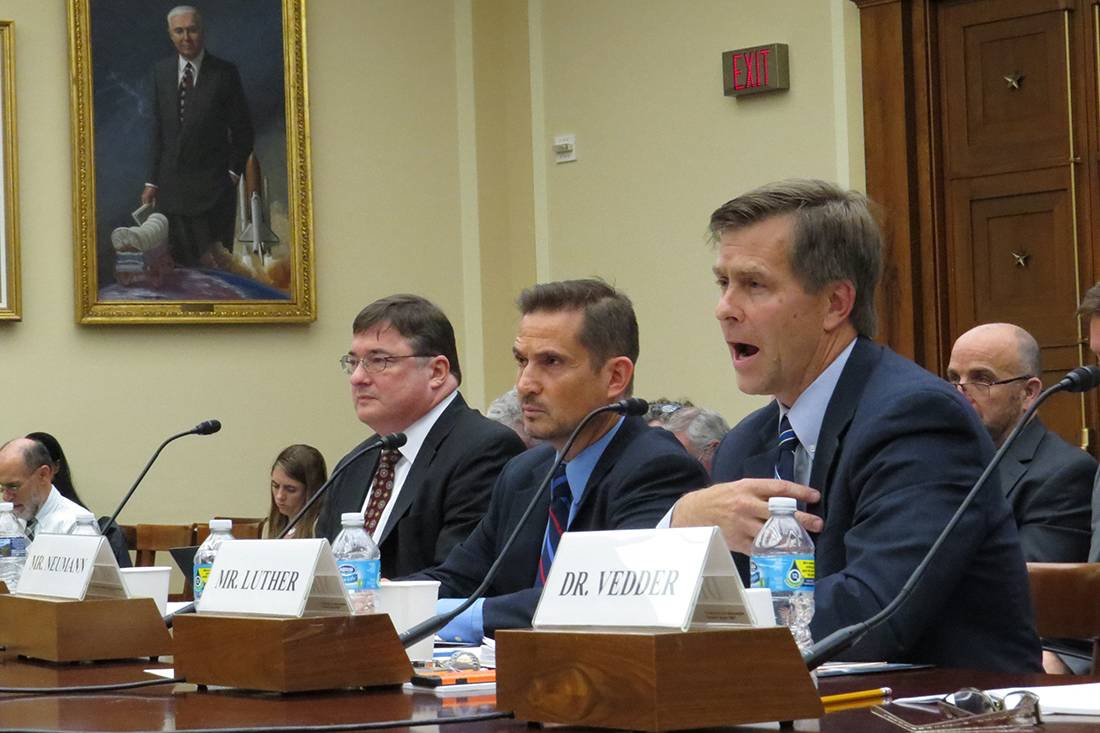Luther Testifies on Government-Funded Research and the University-Government Nexus
Associate vice president explains role of infrastructure costs to research

Jim Luther, Duke’s Associate Vice President of Finance, testified Wednesday before the House Committee on Science, Space and Technology on the overhead costs of conducting research at a university.
Luther’s testimony described how the university-government partnership takes advantage of each party’s strongest abilities. Government provides rigorous oversight, accounting, review boards and financial incentives. Universities, in turn, offer talent, infrastructure, management, and responsibility.
“[Facilities and Administrative (F&A)] costs are tightly regulated and audited by the government to ensure that the government funds only the portion of F&A costs… that are attributable to the performance of federally funded research,” Luther said.
The combination of Health and Human Services and the Office of Naval Research (the two major government agencies responsible for determining university F&A rates) provides detailed guidance to drive oversite, review and negotiation, he added.
University facilities and administrative (F&A) costs were previously discussed May 17 at a National Institutes of Health (NIH) budget hearing before the House Labor-HHS-Education Appropriations Subcommittee. At that hearing, NIH Director Francis Collins said cuts to F&A would be viewed by the research community as cuts to essential research costs. He also said university leaders continue to tell him that they are already subsidizing the research they perform for the NIH, in part because of the costs associated with complying with increasing federal regulations.
According to Luther, the university-government relationship is rooted in decades of work to advance national security, health and prosperity. Critical research infrastructure relies on government support of indirect F&A costs. F&A cannot be viewed as separate from direct costs (such as personnel, supplies and equipment), but rather represent the total cost of conducting research.
Wednesday’s hearing offered universities a chance to air their perspective on the necessity of investing in academic infrastructure. Luther left the congressional committee with a message: universities, as the engines of discovery, are essential to advancing the national frontier.
Subcommittee chair Rep. Barbara Comstock (R-Va.) took a second from her opening remarks “to note that the president’s budget proposal is just that. A proposal. Congress gets to decide where money actually goes and this committee has a strong history of supporting science.”